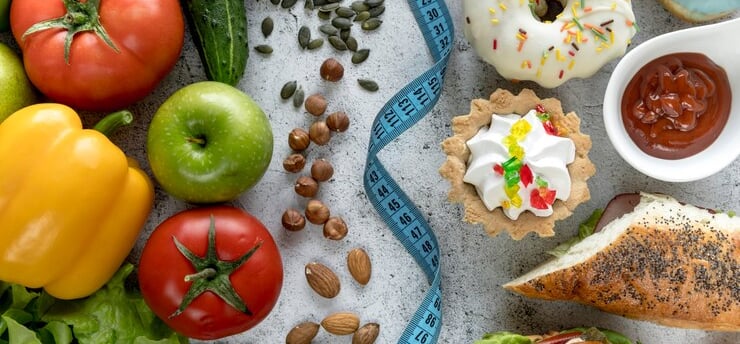How Calories Burning Works: Understanding the Key to Energy and Weight Loss
Have you ever wondered how your body burns calories and why it's so important for weight loss? This article takes an in-depth look at this process, helping you understand how your body uses energy and offering practical tips to boost calorie burning for better health.
MEN & WOMEN
11/24/20244 min read


What does it mean to burn calories?
Think of calories as fuel for your body. Every bite of food and sip of drink you take contains energy your body uses to keep you active and energized. Even while you're lying on the couch binge-watching your favorite show, your body burns calories to power vital functions like breathing, circulating blood, and keeping your brain active.
When you wake up, walk, or go to the gym, your body burns more calories to provide the energy you need. The total number of calories you burn per day depends on your metabolic rate, your activity level, and a few other factors we'll cover later.
How Your Body Uses Energy
Your body is a complex machine, and burning calories requires multiple processes that work together. Here's a brief explanation:
Basal Metabolic Rate (BMR): This is the energy your body needs to survive at rest. BMR covers basics like breathing, maintaining your heartbeat, and maintaining your body temperature. It's a significant portion of your daily calorie burn—about 60-70%!
Thermic Effect of Food (TEF): Believe it or not, digesting and processing food also burns calories. This accounts for about 10% of your daily energy expenditure.
Physical Activity: Moving your body burns calories. Whether it's walking the dog, dancing in the living room, or hitting the gym, it's the most flexible part of the calorie-burning equation.
What happens when you burn calories?
Imagine you just ate a sandwich. Your body breaks down the calories into smaller components, such as glucose (sugar), fatty acids, and amino acids. These components are sent to your cells, converted into energy through a process involving a molecule called ATP (adenosine triphosphate).
This energy fuels everything you do, from typing on a keyboard to running a race. The harder you work, the more energy your body needs, and the more calories you burn.
There's also a fascinating phenomenon called the afterburn effect (scientifically known as excess post-exercise oxygen consumption, or EPOC). After a hard workout, your body continues to burn calories to repair muscles and restore energy levels. It's your body's way of saying, "That was tough—let me clean up and recharge!"
Factors Affecting Calorie Burn
Have you noticed that some people can eat whatever they want without gaining weight, while others gain weight just by looking at a piece of cake? The truth is, metabolism varies from person to person. Here are some key factors:
Muscle vs. Fat: Muscle burns more calories than fat, even at rest. For this reason, people with more muscle tend to have a faster metabolism.
Age: As we age, our metabolisms naturally slow down, partly due to the loss of muscle mass over time.
Gender: Men typically burn more calories than women because they have more muscle mass.
Activity Level: The more you move, the more calories you burn—it's that simple!
Genetics: DNA plays a role in how efficiently your body burns calories, although lifestyle choices also matter.
How to Burn More Calories
The good news? You don't have to settle for your current calorie burn rate. There are several ways to boost your metabolism and increase your body's energy expenditure:
Move: Exercise is the most obvious way to burn calories. Combine cardio (like running or swimming) with strength training for best results. High-intensity interval training (HIIT) is particularly effective because it pushes your body to work harder in short bursts, resulting in higher calorie burn.
Build muscle: Since muscle burns more calories than fat, adding strength training to your routine can boost your metabolism even while you're resting.
Activity throughout the day: Don't underestimate the power of small movements. Climbing the stairs, walking during phone calls, or even fidgeting can add up over time.
Eat healthy: Protein-rich foods like chicken, fish, and beans require more energy to digest and can help you feel full longer. Drinking water also supports your metabolism and prevents overeating.
Prioritize rest: Believe it or not, sleep is essential for burning calories. Lack of sleep can disrupt your hormone balance, increasing cravings and slowing your metabolism.
Separating Fact from Fiction
There's a lot of misinformation out there about burning calories. Let's clear up some myths:
Myth: Sweating means burning more calories. Not necessarily. Sweat cools your body, but it doesn't always correlate with the number of calories you've burned.
Myth: You can only burn calories at the gym. Everyday activities like cleaning, playing with your kids, or even laughing burn calories too.
Myth: Eating less is always better. Severely reducing calories can slow your metabolism, making it harder to lose weight.
The Role of Diet in Burning Calories
Exercise is important, but a healthy diet is just as important for controlling your weight. To lose weight, you need to burn more calories than you consume—this is known as a calorie deficit.
But this doesn't mean starving yourself. In fact, crash dieting can backfire, slowing your metabolism and causing muscle loss. Instead, focus on eating nutrient-rich foods that provide your body with the energy it needs to perform at its best.
For example, swapping sugary snacks for fruit, or choosing lean proteins over processed foods, can make a big difference over time. Combine a balanced diet with regular exercise, and you'll have the perfect combination.
The Bottom Line
Burning calories isn't just about hitting the gym or doing a lot of physical activity—it's a complex process that keeps your body active and helps you maintain a healthy weight. By understanding how it works, you can make smarter choices to boost your metabolism and achieve your goals.
Whether through physical activity, a healthy diet, or building muscle, burning more calories is in your hands. Remember, small changes can yield big results over time. So, take it one step at a time and enjoy your journey to better health and greater activity!
Follow us on social media
Explore fitness articles and personal training options.
Fitness Jobs
© 2024. All rights reserved.
